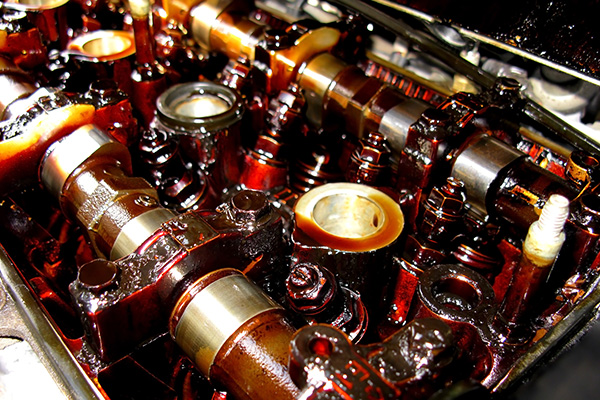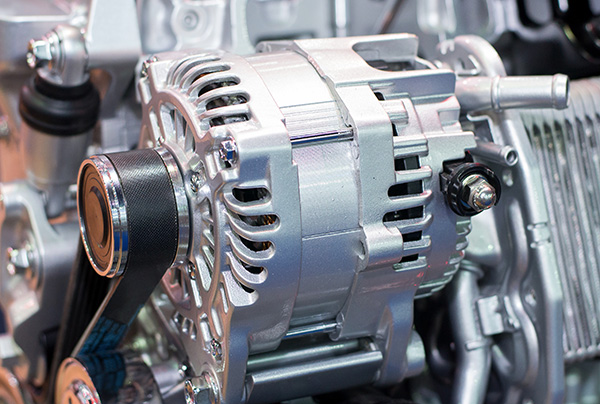Posted on 12/19/2025

You turn on the A/C, expect clean, cool air, and instead get a whiff of something musty, sour, or just plain nasty. Once you notice it, you cannot ignore it, and every drive feels less comfortable. A smelly A/C is more than an annoyance, it is a sign that something inside the system or cabin needs attention. Why Your Car’s A/C Starts to SmellYour A/C system cools the air by running it across a very cold evaporator inside the dash. As warm, humid air hits that cold surface, moisture condenses and drains away. When everything is clean and draining well, you never think about it. Over time, dust, pollen, and tiny debris stick to that damp surface. Bacteria and mold love that environment, especially in a warm climate with plenty of humidity. That is when odors begin to build. Once the smell is present, it usually gets worse each time the system runs without being cleaned. Common A/C Odor ... read more
Posted on 11/28/2025

A locked steering wheel with a key that will not turn usually points to a column lock that is loaded, a key cylinder issue, or an interlock that is not satisfied. Modern push-button systems add electronic locks and sensors to the mix. Here is how to sort quick fixes from real faults without damaging the column or key set. What Is Happening Inside the Column Most vehicles use a pawl that drops into a notch on the steering shaft when the key is removed. If the front wheels rest against a curb or the wheel was turned after shutdown, the lock pin can bind tightly. The ignition cylinder itself uses tiny wafers that match your key’s cuts. Wear, dirt, or a slightly bent key can keep those wafers from lining up, which prevents rotation even when everything else is correct. Quick, Safe Checks Before You Force AnythingTry a gentle left-right wig ... read more
Posted on 10/31/2025

Fresh oil does a lot of heavy lifting inside your engine. It reduces friction, carries away heat, suspends contaminants, and seals tiny clearances so parts move smoothly. As miles and months pass, that same oil slowly loses the qualities that make it protective. If it stays in service too long, wear starts to climb and small problems begin to stack up. Here is what really happens when oil ages past its useful life and how to keep your engine safe. Why Oil Breaks Down Over Time Every heat cycle changes oil at a molecular level. High temperatures thin it out, then cool downs thicken it again. Oxygen reacts with the base oil and starts oxidation. Fuel and moisture mix in during short trips. Detergents and dispersants get used up holding grit and soot. Eventually the oil cannot do its job as well as it did on day one. It still looks like oil, but its protective film is weaker and less stable under load. Viscosity Drift and Cold Start Wear Engines need ... read more
Posted on 9/26/2025

The alternator plays a bigger role in your vehicle than many drivers realize. While the battery gets your car started, the alternator supplies electricity once the engine is running. It recharges the battery and powers everything from the headlights to the fuel injectors. Without it, your vehicle can only run for as long as the battery has charge, which may be a matter of minutes. Recognizing the warning signs of alternator trouble can prevent unexpected breakdowns and expensive damage. Dim or Flickering Lights One of the most common indicators of alternator trouble is lighting that behaves strangely. If your headlights dim when you accelerate or your dashboard lights flicker at idle, the alternator may not be keeping up with demand. These symptoms often appear gradually and may come and go, which makes them easy to overlook. However, inconsistent voltage is usually the first sign of a charging system problem and should be checked immediately. Dashboard Warn ... read more
Posted on 8/29/2025

Many drivers eventually notice their car isn’t going as far on a tank of gas as it used to. A small dip in efficiency can happen naturally as a vehicle ages, but significant or sudden decreases usually mean something is wrong. Since fuel efficiency affects both your wallet and your vehicle’s performance, it’s essential to understand what could be causing the issue and take action before it worsens. Tire Pressure and Rolling Resistance One of the simplest causes of poor fuel economy is low tire pressure. Underinflated tires create extra resistance on the road, forcing your engine to work harder. Even being a few PSI under the recommended level can reduce gas mileage. Uneven wear or misaligned wheels can have a similar effect. Checking tire pressure monthly and keeping your wheels aligned is an easy way to maintain fuel efficiency. Engine Performance Issues If your car’s engine is struggling, it will burn more fuel to make up ... read more